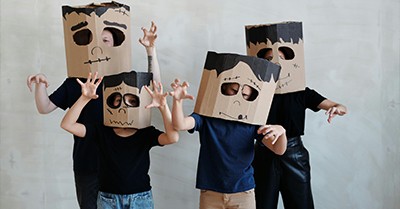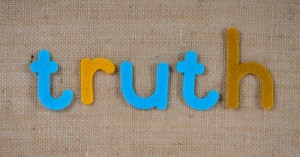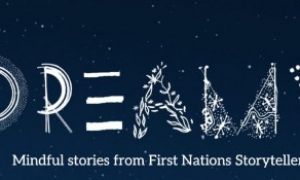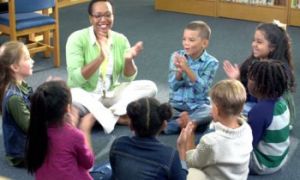Celebrating Halloween in early childhood settings can be enriching, but it’s important to weigh the benefits and challenges thoughtfully. Here's a breakdown to help guide your decision:
Benefits of Celebrating Halloween
-
Creativity & Imagination
Activities like costume-making, spooky crafts, and themed storytelling stimulate children’s creative thinking and self-expression. -
Cultural Awareness
Halloween, though rooted in American tradition, is increasingly popular in Australia. Celebrating it can foster discussions about cultural diversity and global traditions. -
Community & Connection
Group activities like pumpkin decorating or themed games build social bonds and a sense of belonging among children, educators, and families. -
Curriculum Links (EYLF v2.0)
Halloween experiences can align with learning outcomes:- Outcome 4: Creativity and problem-solving (e.g., pumpkin art)
- Outcome 5: Literacy and storytelling (e.g., spooky storytime)
Considerations & Challenges
-
Emotional Safety
Some costumes or decorations may frighten young children. Age-appropriate choices and clear boundaries are essential. -
Family Beliefs & Inclusivity
Not all families celebrate Halloween due to cultural or religious reasons. Transparent communication and opt-in participation help maintain respect and inclusivity. -
Overstimulation
Loud noises, flashing lights, or chaotic environments can overwhelm children. Calm, sensory-friendly setups are preferable.
Tips for a Thoughtful Celebration
- Offer non-scary, symbolic activities like nature-based crafts or storytelling with gentle themes.
- Use opt-in participation and provide alternatives for children who don’t celebrate.
- Frame Halloween as a creative and cultural exploration, not just a costume party.
- Consider co-designing reflective tools—like emotion cards or themed diaries—to help children process excitement, fear, or curiosity.
Further Reading
Halloween Activities For Children
Celebrating Halloween In Early Childhood Settings
Halloween Songs and Rhymes Posters
Celebrate Halloween With Free Printables And Activities
Critical Reflection Questions On Should We Celebrate Halloween?







 As an Educator in Australia, your pay rate falls under the Children’s Services Award 2010. This award states the minimum amount that an employer can
As an Educator in Australia, your pay rate falls under the Children’s Services Award 2010. This award states the minimum amount that an employer can When working as a qualified Early Childhood Teacher (with a university degree) within a service, your rate of pay will come from the Educational Services
When working as a qualified Early Childhood Teacher (with a university degree) within a service, your rate of pay will come from the Educational Services When working as a Diploma Qualified Educator your pay rate is from the Children's Services Award 2010. This Award states your minimum rate of pay
When working as a Diploma Qualified Educator your pay rate is from the Children's Services Award 2010. This Award states your minimum rate of pay When working as a Cert 3 Qualified Educator, your pay rate is from the Children's Services Award 2010. This Award states your minimum rate of
When working as a Cert 3 Qualified Educator, your pay rate is from the Children's Services Award 2010. This Award states your minimum rate of Educational Leaders play a crucial role in their early childhood service by ensuring that the educational program aligns with best practices and supports the holistic
Educational Leaders play a crucial role in their early childhood service by ensuring that the educational program aligns with best practices and supports the holistic In early childhood education and care, ratios are more than a technicality—they are a frontline safeguard. Every child deserves responsive supervision, emotional connection, and developmental
In early childhood education and care, ratios are more than a technicality—they are a frontline safeguard. Every child deserves responsive supervision, emotional connection, and developmental With the new national child safety reforms kicking in on 1 September 2025, early childhood services like yours have a real opportunity to lead the
With the new national child safety reforms kicking in on 1 September 2025, early childhood services like yours have a real opportunity to lead the Here’s a comprehensive Mobile Phone and Smart Watch Policy tailored for early childhood education and care (ECEC) services in Australia, aligned with the latest 2025
Here’s a comprehensive Mobile Phone and Smart Watch Policy tailored for early childhood education and care (ECEC) services in Australia, aligned with the latest 2025 The Sea of Fish Challenge is a national initiative that invites children, educators, families, and communities to create and display fish artworks as a symbol
The Sea of Fish Challenge is a national initiative that invites children, educators, families, and communities to create and display fish artworks as a symbol Across the early childhood education and care sector, educators are sounding the alarm: current staffing ratios are insufficient to deliver safe, meaningful, and developmentally appropriate
Across the early childhood education and care sector, educators are sounding the alarm: current staffing ratios are insufficient to deliver safe, meaningful, and developmentally appropriate


